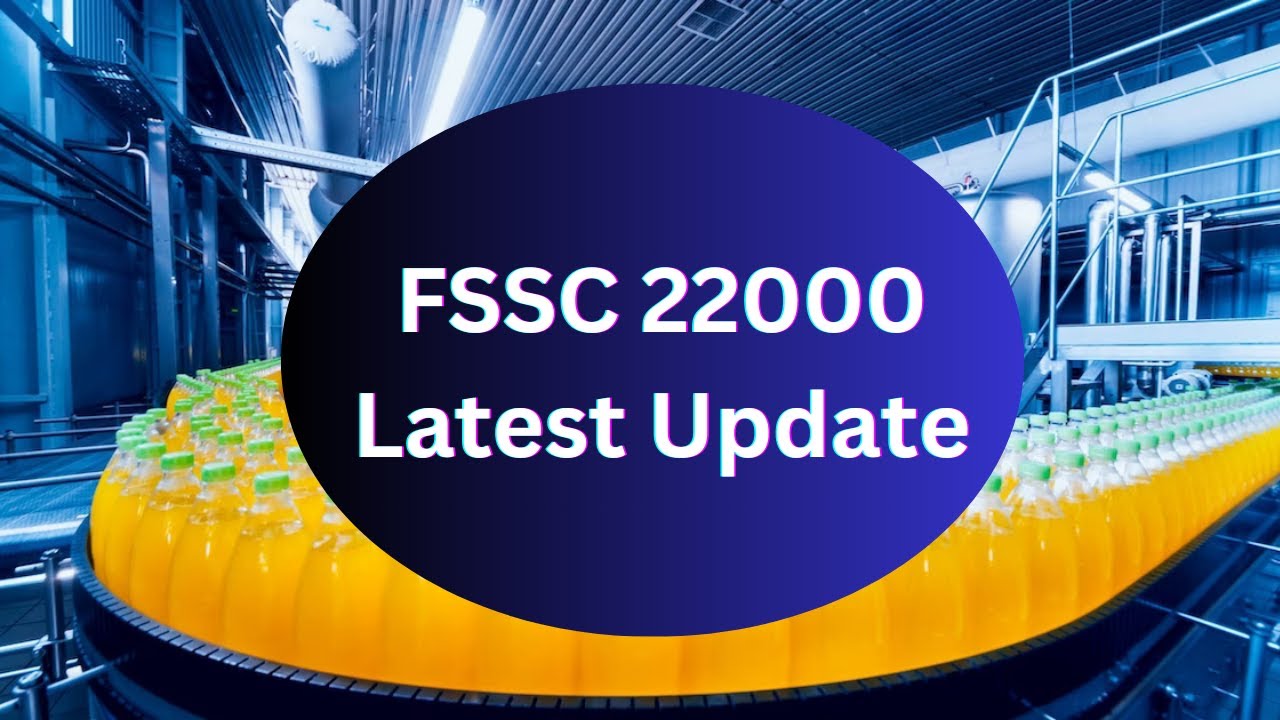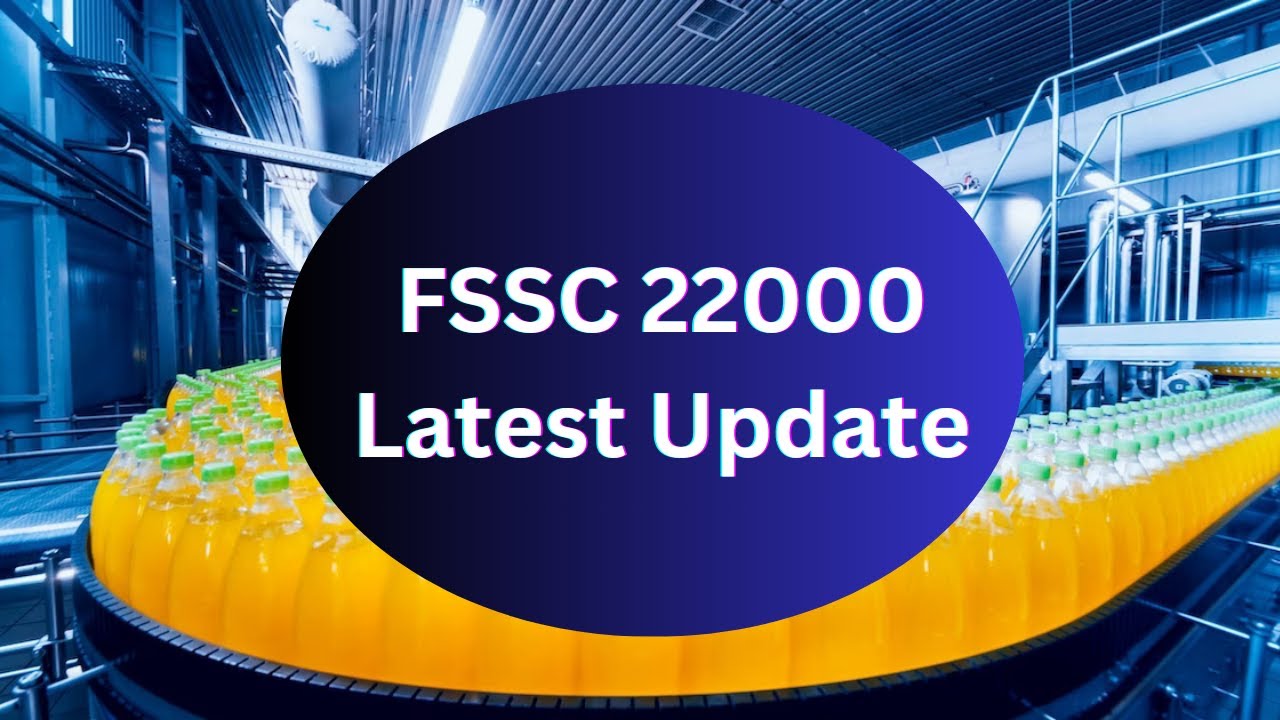A Comprehensive Guide to Choosing Between FSSC 22000 v6 and ISO 22000:2018 in Food Safety Implementation
Ensuring food safety is paramount in the food industry to protect consumers and uphold public health standards. To achieve this, various food safety management systems (FSMS) have been developed. Among the prominent ones are FSSC 22000 and ISO 22000. Both frameworks provide guidelines for implementing effective food safety management systems, but they differ in certain aspects.
In this comprehensive guide, we'll delve into the nuances of FSSC 22000 version 6 and ISO 22000:2018 to assist stakeholders in making informed decisions when selecting the most suitable system for their food safety implementation needs.
Understanding FSSC 22000 v6
FSSC 22000 (Food Safety System Certification) is a globally recognized certification scheme for food safety management systems, developed by the Foundation for Food Safety Certification. It integrates ISO 22000 standards with additional requirements, particularly targeting the food industry. The latest version, FSSC 22000 v6, incorporates significant updates aimed at enhancing food safety practices.
Click Here to Download Readymade Editable Toolkits & Templates on Quality Assurance/Quality Control, Lean Six Sigma, Risk Management, Lean Manufacturing, Six Sigma, ISO 9001, ISO 14001, ISO 22000, ISO 45001, FSSC 22000, HSSE, Project Management etc.
Key Features of FSSC 22000 v6
- Inclusion of ISO 22000:2018: FSSC 22000 v6 aligns with ISO 22000:2018, ensuring compatibility with the latest international food safety management standards.
- Additional Requirements: FSSC 22000 v6 includes specific prerequisites such as food fraud prevention, food defense, and food allergen management, offering a comprehensive approach to food safety.
- Scope: FSSC 22000 v6 is tailored primarily for food manufacturers, processors, and packaging material manufacturers, covering various sectors within the food industry.
- Certification Process: Certification under FSSC 22000 v6 involves an audit process conducted by accredited certification bodies, ensuring compliance with the scheme's requirements.
- Global Recognition: FSSC 22000 v6 is recognized globally, providing credibility and assurance to consumers, regulators, and stakeholders across different markets.
Understanding ISO 22000:2018
ISO 22000 is an international standard developed by the International Organization for Standardization (ISO) for food safety management systems. It provides a generic framework applicable to organizations across the food supply chain, irrespective of size or complexity.
Key Features of ISO 22000:2018
- Generic Application: ISO 22000:2018 is designed to be applicable to all organizations involved in the food chain, including producers, processors, retailers, and service providers.
- Risk-Based Approach: The standard emphasizes a risk-based approach to identify, assess, and control food safety hazards, ensuring proactive management of potential risks.
- Continual Improvement: ISO 22000:2018 promotes a culture of continual improvement, requiring organizations to regularly review and update their food safety management systems to enhance effectiveness.
- Compatibility: ISO 22000:2018 is designed to be compatible with other management system standards, facilitating integration with existing quality management systems such as ISO 9001.
- Global Acceptance: ISO 22000:2018 is recognized internationally, providing organizations with a framework for demonstrating their commitment to food safety and compliance with regulatory requirements.
Choosing Between FSSC 22000 v6 and ISO 22000:2018
When deciding between FSSC 22000 v6 and ISO 22000:2018 for food safety implementation, several factors should be considered:
- Industry Specificity: FSSC 22000 v6 is tailored specifically for the food industry, making it an ideal choice for food manufacturers, processors, and related sectors. In contrast, ISO 22000:2018 has a broader applicability across the entire food supply chain, including sectors beyond food manufacturing.
- Additional Requirements: Organizations seeking a more comprehensive approach to food safety may prefer FSSC 22000 v6 due to its inclusion of specific prerequisites such as food fraud prevention and food defense. These additional requirements address emerging challenges and enhance the robustness of the food safety management system.
- Certification Requirements: While both FSSC 22000 v6 and ISO 22000:2018 require certification by accredited bodies, the certification process and associated costs may vary. Organizations should evaluate the certification requirements and associated resources to make an informed decision.
- Market Acceptance: Both FSSC 22000 v6 and ISO 22000:2018 enjoy global recognition and acceptance. However, the choice may depend on regional preferences, industry standards, and customer requirements in specific markets.
- Integration with Existing Systems: Organizations with existing management systems, such as ISO 9001 for quality management, may find ISO 22000:2018 more compatible for integration due to its generic framework. FSSC 22000 v6, while aligned with ISO 22000:2018, includes additional sector-specific requirements that may require further integration efforts.
Click Here to Download Readymade Editable Toolkits & Templates on Quality Assurance/Quality Control, Lean Six Sigma, Risk Management, Lean Manufacturing, Six Sigma, ISO 9001, ISO 14001, ISO 22000, ISO 45001, FSSC 22000, HSSE, Project Management etc.
Conclusion
In conclusion, choosing between FSSC 22000 v6 and ISO 22000:2018 requires careful consideration of various factors, including industry specificity, additional requirements, certification requirements, market acceptance, and integration with existing systems. Both frameworks offer robust guidelines for implementing effective food safety management systems, and the decision should align with the organization's goals, priorities, and operational context. By understanding the key features and considerations associated with each framework, stakeholders can make informed decisions to enhance food safety practices and meet regulatory requirements in the food industry.
The following are some selected Industry Courses to start today!
1. ISO MANAGEMENT SYSTEMS IMPLEMENTATION & INTERNAL AUDITOR COURSES
- Integrated Management Systems (IMS) Implementation Course
- FSSC 22000 Implementation & Internal Auditor Course
- ISO 22000 Implementation & Internal Auditor Course
- ISO 22000 (HACCP, PRPs, oPRPs and CCPs) for Food Safety
- Certified Internal Auditor (CIA) Training Course
- ISO 9001 (QMS) Implementation & Internal Auditor Course
- ISO 14001 (EMS) Implementation & Internal Auditor Course
- ISO 45001 (OH&SMS) Implementation & Internal Auditor Course
- Food Fraud Mitigation & Defense Certification Course
2. ISO LEAD AUDITOR COURSES
- ISO 50001 Energy Management Systems (EnMS) Lead Auditor Course
- ISO 22000 Food Safety Management Systems (FSMS) Lead Auditor Course
- ISO 14001 Environmental Management Systems (EMS) Lead Auditor Certification Course
- ISO 45001 Occupational Health & Safety Management Systems (OH&MS) Lead Auditor Certification Course
- ISO 9001 Quality Management Systems (QMS) Lead Auditor Course
3. MANUFACTURING, QUALITY, PRODUCT DEVELOPMENT, OPERATIONS & SUPPLY CHAIN MANAGEMENT
- Good Manufacturing Practices (GMP)
- ISO/IEC 17025 – Laboratory Management Systems Certification
- Essentials of Engineering Project Management
- Construction Project Management
- Essentials of Contract Management
- Environmental Impact Assessment (EIA)
- Laboratory Management Systems (LMS) Essentials
- Certified Manager of Quality & Process Excellence
- Essentials of Facility Management
- Agile Project Management
- Engineering Codes, Standards and Specifications
- Industrial Process Safety
- Fundamentals of Risk Management
- Industry 4.0: Digital Transformation in Manufacturing
- Manufacturing Operations Management Certification Course
- Total Quality Management (TQM) Certification Course
- Supply Chain Management (SCM) MasterClass
- Certified Lean Management Professional™ (CLMP™)
- Six Sigma for Business and Manufacturing Process Improvement
- Product Management Certification Course
- Statistical Process Control (SPC) and Data Analysis Course
- Quality Assurance for Business and Operational Excellence
- Lean Six Sigma Yellow Belt Certification Course
- Essentials of Facility Management
- Agile Project Management
- Engineering Codes, Standards and Specifications



